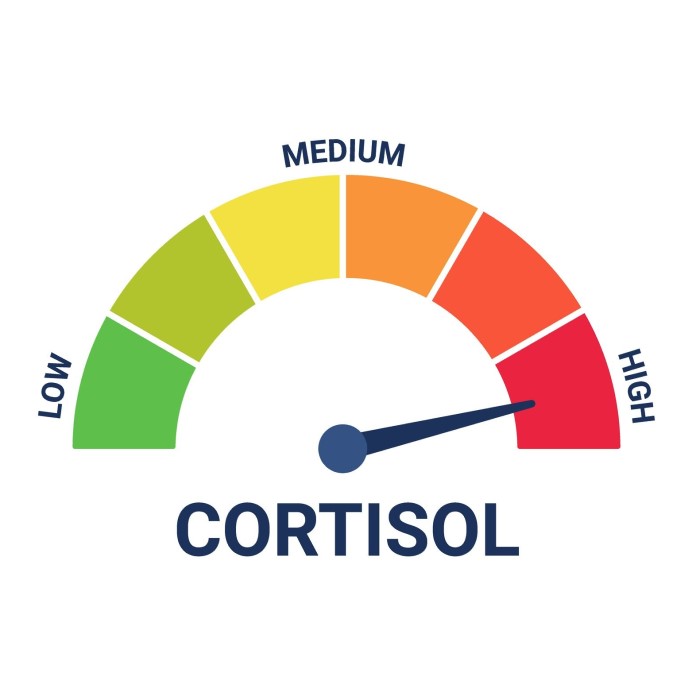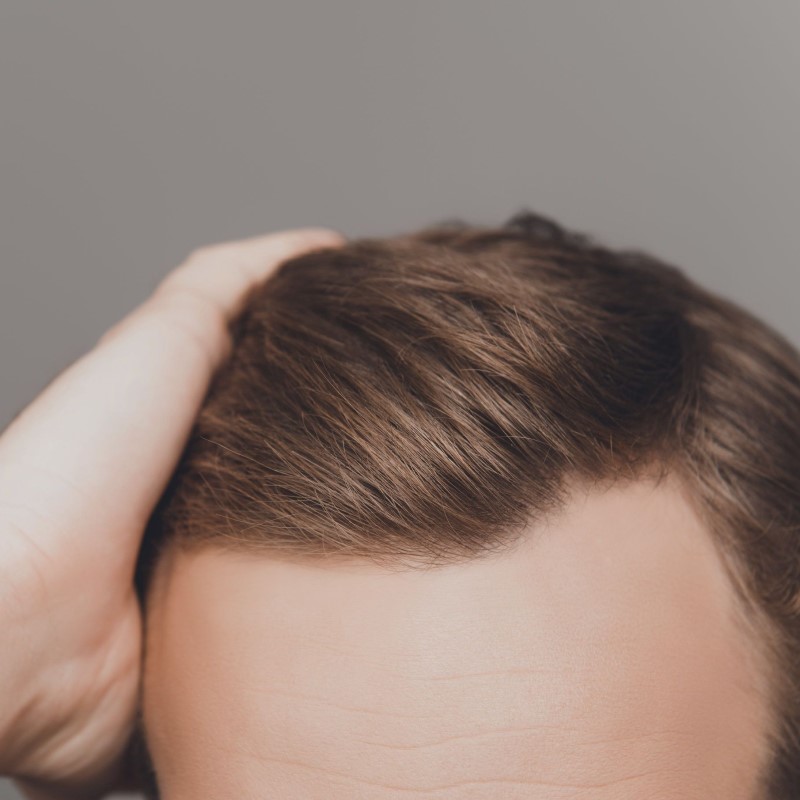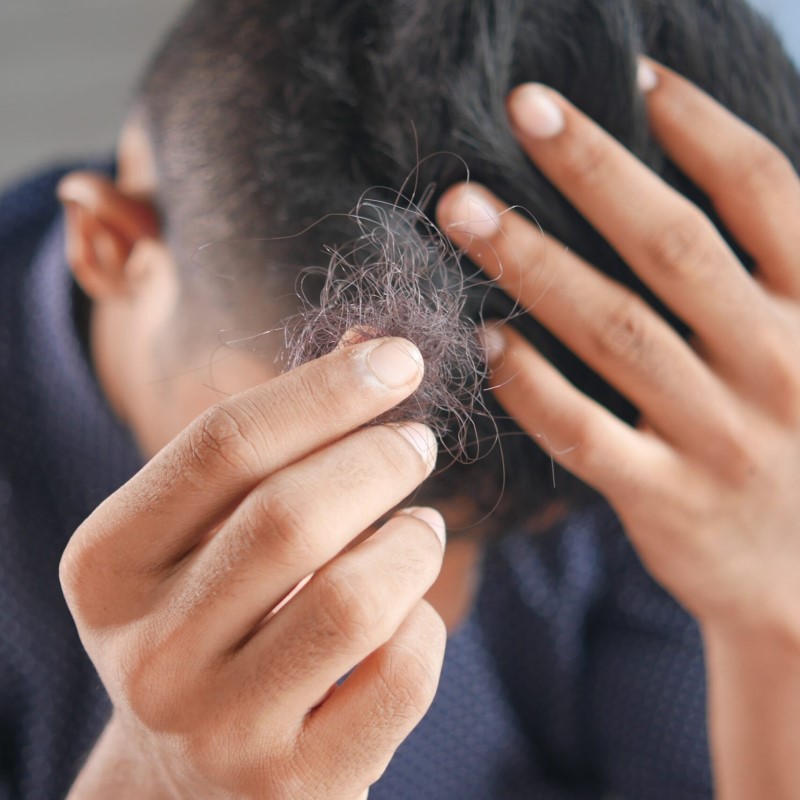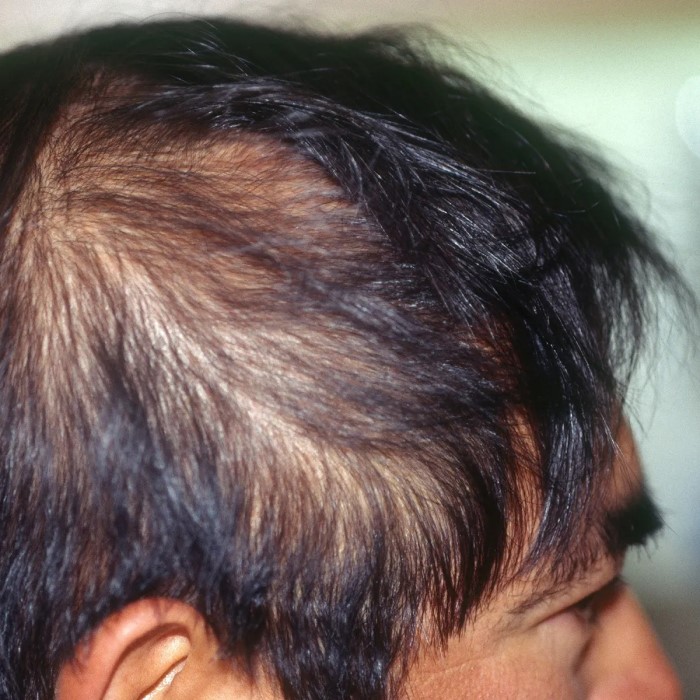
Understanding: Does High Cortisol Cause Hair Loss in 2025?
Introduction: The Connection Between Cortisol and Hair Loss
The relationship between high cortisol levels and hair loss has become a topic of growing concern for many individuals navigating the pressures of modern life. Cortisol, often called the “stress hormone,” is produced by the adrenal glands and plays a vital role in several bodily functions, including regulating metabolism and the immune response. However, chronic elevation of cortisol levels can lead to detrimental effects on hair health, raising the question: does high cortisol cause hair loss?
Understanding this connection is crucial, especially as stress becomes an increasingly prominent factor in our everyday lives. In this article, we will explore how elevated cortisol impacts hair follicles, the mechanisms behind its effects on hair loss, and actionable strategies for managing cortisol levels to promote healthier hair.

What Is Cortisol?
Definition and Functions
Cortisol is a steroid hormone that is produced in the adrenal glands. It is released into the bloodstream in response to stress, with its primary functions including regulating blood sugar levels, influencing metabolism, and modulating immune responses. While cortisol is essential for maintaining bodily functions during times of stress, it can become problematic when levels remain persistently high.
Regulation of Metabolism
- Essential Role in Metabolism: Cortisol is a steroid hormone produced by the adrenal glands that is vital for the metabolism of essential macronutrients, including carbohydrates, fats, and proteins.
- Blood Glucose Maintenance: One of cortisol’s primary functions is to help maintain stable blood glucose levels. It achieves this by promoting gluconeogenesis, a process that converts non-carbohydrate sources into glucose, especially during periods of fasting or stress.
- Energy Provision During Stress: By regulating glucose levels, cortisol ensures that the body has a readily available source of energy to respond to various stressors, such as physical challenges or psychological strain. This energy is crucial for the “fight or flight” response.
Inflammation Control
- Anti-Inflammatory Properties: Cortisol is recognized as a powerful anti-inflammatory agent that helps modulate the body’s inflammatory response. It inhibits the synthesis of inflammatory substances and helps to reduce swelling and pain.
- Importance for Healing: This anti-inflammatory function is critical for the healing process, allowing the body to recover from injuries and infections more effectively.
- Potential for Immune Suppression: While beneficial in the short term, prolonged elevation of cortisol levels can lead to immune system suppression. This can increase susceptibility to infections and reduce the body’s ability to fight off diseases when the immune response is persistently dampened.
Impact on Mood and Cognition
- Influence on Mood Regulation: Cortisol levels are closely linked to mood regulation. Elevated cortisol, often a result of chronic stress, can negatively affect emotional well-being, leading to feelings of irritability or mood swings.
- Cognitive Function Effects: High cortisol levels can impair various cognitive functions, including memory, attention, and problem-solving abilities. This impact can complicate daily functioning and overall quality of life.
- Relation to Anxiety and Depression: The relationship between cortisol and stress is complex. Chronic stress can lead to elevated cortisol levels, which in turn can contribute to mental health issues such as anxiety and depression. This cyclical relationship highlights the importance of managing stress for overall health.
The Body’s Stress Response
Does high cortisol cause hair loss? Cortisol is released during the body’s “fight or flight” response, a natural survival mechanism designed to protect against perceived threats. When faced with stress, cortisol levels surge, priming the body to respond. However, chronic stress—whether psychological, emotional, or physical—can lead to continuously high cortisol levels. This sustained elevation can trigger various health issues, including weight gain, digestive problems, and hair loss.
How High Cortisol Affects Hair Health
Mechanisms Behind Hair Loss
Does high cortisol cause hair loss? Elevated cortisol levels significantly impact hair follicles, leading to various forms of hair loss. The mechanisms through which high cortisol affects hair include:
Telogen Effluvium:
- Definition: Telogen effluvium is a temporary hair loss condition characterized by the premature transition of hair follicles into the telogen, or resting, phase of the hair growth cycle.
- Causal Relationship: High levels of cortisol, a hormone commonly associated with stress, can trigger this condition. When cortisol levels are elevated, it affects the normal functioning of hair follicles.
- Impact on Hair Growth: Stressed hair follicles may shed hair at a much faster rate than usual. This abnormal shedding can lead to noticeable thinning of the hair, affecting both the appearance and the density.
Follicle Shrinking:
- Inflammation Caused by Cortisol: Elevated cortisol levels can lead to inflammation in both the scalp and the hair follicles. This inflammation can have damaging consequences for hair health.
- Follicle Dynamics: When hair follicles become inflamed, they can shrink in size. Shrinking follicles are less able to support robust hair growth.
- Consequences for Hair Strands: As a result of follicle shrinking, the hair strands produced may become thinner and weaker. Over time, this can contribute to an increase in hair loss, making the issue more pronounced.
Nutritional Deficiencies:
- Disruption of Nutrient Absorption: Elevated cortisol levels can negatively impact the digestive system, hindering the process of nutrient absorption. This disruption can lead to significant nutritional deficiencies.
- Essential Nutrients for Hair Health: Critical vitamins and minerals such as zinc, iron, and biotin are essential for maintaining healthy hair growth. When the body lacks these nutrients, the health of the hair can deteriorate.
- Exacerbation of Hair Loss: The absence of these crucial nutrients can worsen hair loss conditions like telogen effluvium, making it increasingly difficult to maintain healthy hair growth and increase overall hair density.
The Psychological Component
Beyond the biological effects of high cortisol, the psychological implications must also be considered. Persistent anxiety or stress relating to hair loss can create a cycle of increased cortisol production and further hair loss. Pets and people alike, individuals feeling anxious may resort to compulsive behaviors, such as hair-pulling, leading to additional hair loss.
Addressing both the physical and psychological aspects is key in mitigating the effects of high cortisol on hair health.
Effective Strategies for Managing Cortisol Levels
Lifestyle Interventions
- Regular Exercise:
Engaging in physical activity is one of the most effective ways to reduce cortisol levels. Exercise promotes the release of endorphins, hormones that elevate mood and reduce stress. - Mindfulness and Meditation:
Practicing mindfulness or meditation techniques can significantly lower stress levels. Deep breathing exercises and yoga are excellent practices that help calm the mind and body, diminishing cortisol production. - Balanced Nutrition:
Eating a well-balanced diet rich in whole foods, fruits, vegetables, lean proteins, and healthy fats can help stabilize cortisol levels. Foods that are high in antioxidants and omega-3 fatty acids are particularly beneficial for managing stress and promoting overall well-being. - Quality Sleep:
Adequate sleep is essential for regulating cortisol levels. Establishing a consistent sleep schedule, creating a relaxing bedtime routine, and limiting blue light exposure can contribute to better sleep quality. - Social Support:
Building a supportive social network can effectively mitigate stress. Sharing concerns with friends or family or engaging in community activities fosters a sense of belonging, reducing feelings of isolation.
Seeking Professional Guidance
If high cortisol levels persist, it’s crucial to consult with a healthcare professional. They can help identify underlying causes and provide tailored recommendations for managing cortisol levels through both lifestyle changes and medical interventions. For example, cognitive behavioral therapy (CBT) may be suggested to address anxiety or stress management effectively.
Frequently Asked Questions
Can hair loss from high cortisol be reversed?
Yes, hair loss caused by elevated cortisol levels can often be reversed by managing stress and lowering cortisol levels. Once the underlying causes of stress are addressed, hair may begin to regrow over time.
How do you flush cortisol out of your body?
While you cannot directly “flush” cortisol out of your body, you can manage its levels through lifestyle changes, including exercise, mindfulness practices, and a balanced diet. Engaging in stress-relieving activities is also helpful.
Is hair loss a symptom of low cortisol?
Hair loss is typically more associated with high cortisol levels rather than low cortisol levels. However, extreme hormonal imbalances, including low cortisol conditions, may contribute to hair thinning in some cases.
What does high cortisol do to your hair?
High cortisol levels can lead to increased hair shedding, thinning of hair, and changes in hair texture. This is primarily due to its impact on the hair growth cycle and inflammation of hair follicles.
Conclusion: Understanding Cortisol’s Impact on Hair Health
In summary, the inquiry into does high cortisol cause hair loss highlights the complex relationship between stress, cortisol, and hair health. Prolonged high levels of cortisol can disrupt the delicate balance necessary for healthy hair growth, leading to various forms of hair loss. Recognizing the signs of elevated cortisol and its effects is essential in taking proactive measures to manage both stress and hair health.
By implementing effective strategies for reducing cortisol levels and promoting well-being, individuals can cultivate a healthier environment for their hair. If hair loss becomes a concern, seeking guidance from healthcare professionals is advisable. Ultimately, prioritizing mental and physical health will foster not just a thriving head of hair but also a balanced life and a greater sense of overall happiness.




